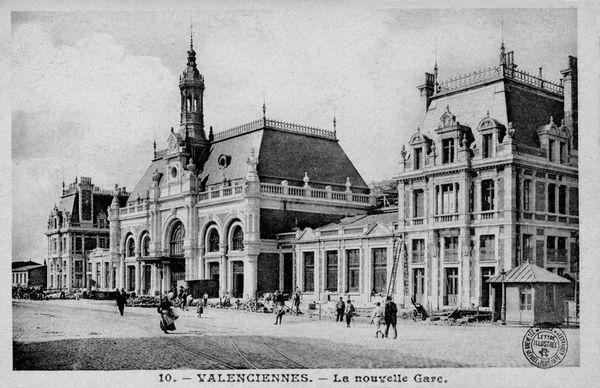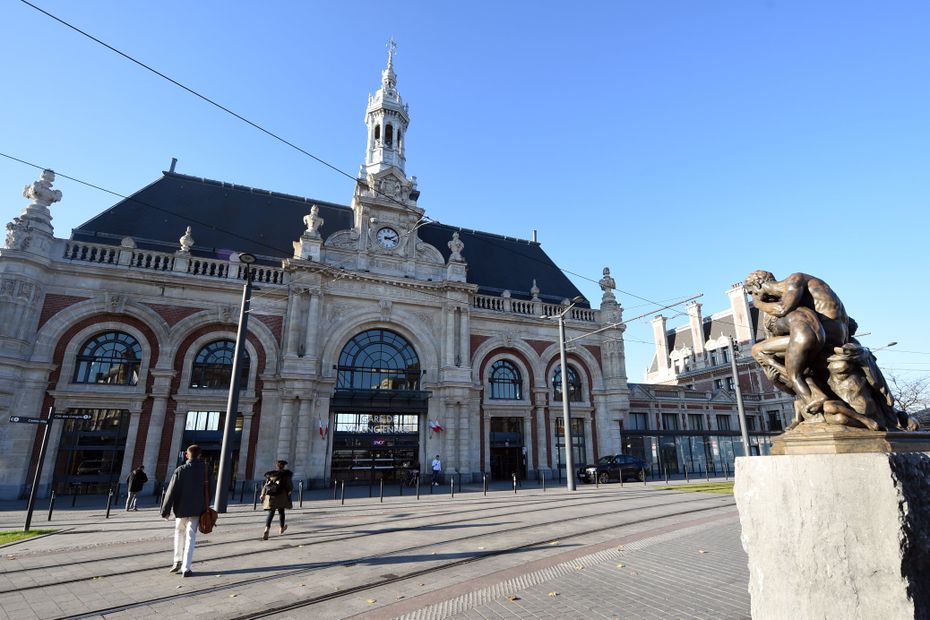This beautiful 20th century monument is in the semi-final of a game launched on Facebook by the SNCF. The goal ? To elect the most beautiful station in France. To your votes!
–
The Gares & Connexions Facebook page, managed by the SNCF, launched a small game very popular with Internet users since the end of November. The latter must elect the most beautiful station in France by voting in knockout matches. After a regional preselection, 32 stations were selected to compete. A drawing of lots determined the order of the matches. This is the third edition of this competition called “Battle & Gares”.
Valenciennes station on the right track
At each turn, the station of Valenciennes met with great success, which enabled it to successively eliminate the stations of Avignon TGV, Toulouse Matabiau and Reims. In the semifinals, she faces Metz station, the big favorite of the tournament since she won the last two editions. You have until Friday to support the city of the North, which moreover really needs it since it is so far less popular than its counterpart in Lorraine (20,900 votes against 19,200). Go to the link below to vote.
If Valenciennes passes this round, it will face Saint-Brieuc station in the final. To give an idea of the commitment generated by this competition, the semi-final between the stations of Saint-Brieuc and Limoges generated 65,000 votes in 48 hours.
And even if the advantage is currently given to Metz station, the mobilization is strong. Laurent Degallaix, mayor of Valenciennes, invites as many Internet users as possible to participate.
The oldest station in the Compagnie des Chemins de fer du Nord network
However, the Valenciennes station has many assets to access the final of the competition, as its rich history testifies. It is first of all the oldest in the network of the Northern Railway Company. Commissioned in 1842, the station was first built in wood, blending in with the lush greenery of the time.
The Valenciennes station, in 1904, was built in wood.
•
© SARDO – National Center for Historical Archives (CNAH) of the SNCF Group © All rights reserved
–
Nevertheless, the station that we know today was designed by Clément Ligny at the beginning of the 20th century, before being put into service in 1909. It consists of a central building connected to two side pavilions.

The new station of Valenciennes, built in stone, in 1909.
•
© SARDO – National Center for Historical Archives (CNAH) of the SNCF Group © All rights reserved
–
In the aftermath of the First World War, the bombardments wreaked havoc and a large part of the station was destroyed – in particular the metal hall – as shown by this postcard of the time.

In 1918, the passenger hall of the Valenciennes station destroyed by bombardments during the First World War.
•
© SARDO – National Center for Historical Archives (CNAH) of the SNCF Group © All rights reserved
–
The station will then be rebuilt identically. It was completely renovated in 2010. SNCF estimates its annual attendance at more than 3 million travelers.
–
Continue reading on these topics
–
–


